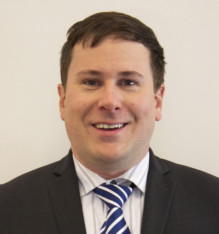How Universities Misuse Donor Dollars
A bizarre legal case at the University of Missouri is providing an inside look at the corrupt dealings that afflict American higher education.
Sherlock Hibbs, a wealthy alumnus of the school who passed away in 2002, set aside $5 million from his estate to endow up to three chairs and three additional professorships in the study of Austrian economics. The gift’s terms included an awkwardly worded stipulation that the positions must go to “dedicated and articulate disciples” of Ludwig von Mises. The University of Missouri acceded to those terms and accepted the gift. Indeed its failure to follow them would invoke another clause, in which case the money would transfer to Hillsdale College — a small conservative-leaning institution in Michigan that also has an established program in Austrian economics.
At the time, the University of Missouri business school openly touted the purpose of the gift. A 2003 press release announced that Hibbs’s donation was provided in “support of three chairs and three professorships emphasizing the philosophy and tenets of the Austrian School of Economics.”
Missouri took the money and, over the past two decades, used it to endow positions for four faculty members. The recipients specialize in management and marketing. None appear to have any discernible research or teaching interests that even tangentially connect them to Austrian economics or to Mises. As a result of what appears to be a violation of the terms of the original endowment, Hillsdale is now suing Mizzou to invoke the transfer clause.
The circumstances of the case raise several interesting questions about the role of donor influence over academic hiring decisions. Requiring a new faculty hire to be a “disciple” of a specific scholar or thinker may chafe with the norms of conducting an open faculty search. Assuming it objected to such language, it was incumbent upon Mizzou’s administration to change or decline the terms of the gift at the time. The administration did not do so, however, and accepted it as presented.
At the same time, endowing a research program in a specific field or branch of study is a common and accepted practice in academia, including programs intended to support research of a specific political stripe.
Commentators on the left often bemoan the growing influence of “right-wing money” in higher education, yet this grievance is disingenuously offered. Conservative, libertarian, and free market research programs comprise a small and shrinking minority in an academy where almost two-thirds of all faculty identify as left-wing. Meanwhile, voices that object to conservative philanthropy, as may be seen in the example of a recent report by the Urban Institute, almost never object when such funding flows in the other direction.
Indeed, philanthropic funding for a multitude of perspectives signifies a healthy academy in which scholars hailing from diverse schools of thought may contest the conventions and orthodoxies of a profession. At a time when many academic disciplines, and particularly the humanities, are evolving in the direction of an ideologically homogeneous far-left echo chamber, economics still retains a number of developed research programs across the political spectrum. A vibrant Austrian research program currently exists at George Mason University. At the same time, overtly progressive research programs with heavy philanthropic support from the Left may be found in the economics departments at UMass Amherst, at Bard College’s Levy Institute, and at the New School. All are beneficiaries of donors who evince an interest in advancing specific schools of economic thought, as was the intended case with Hibbs’s donation to Mizzou.
Administrators at Missouri could have easily honored their donor’s intentions while also respecting the independence of their faculty in hiring decisions. Instead of stipulating a Mises “disciple” in their job advertisement, they could have respected the spirit of the donation by simply seeking economists who specialize and publish on topics related to Austrian economics. Such practices happen routinely and without objection in academic hiring. Indeed, a simple perusal of job listings in the humanities will reveal the proliferation of research emphases tied to critical theory, “social justice,” and other, much more overtly political causes on the left.
Instead, Mizzou’s administrators appear to have taken the money and repurposed it to an entirely different use than its donor’s intentions. When this misappropriation finally attracted attention some 15 years later, the university responded with a comical proceeding in an attempt to provide itself with cover. In May 2018, administrators produced signed statements from the four faculty recipients of Hibbs’s gift. All four declared themselves “dedicated and articulate disciples of the Ludwig von Mises Austrian School of Economics.”
In releasing the letters, a spokesman for Mizzou declared, “We’re always very careful to use gift funds as per the explicit wishes of our donors.” The conspicuous absence of both Mises and Austrian economics from the research and teaching interests of all four signatories casts doubt upon the sincerity and accuracy of this statement. Rather, the letter appears to have been drafted as a pretext for preserving the $5 million gift and preventing its transfer to Hillsdale for nonfulfillment of the terms. In an added stroke of irony, at least one of the faculty signatories is an expert in the ethics of holding business executives accountable for acts of wrongdoing and misconduct.
The case of Hibbs’s misused donation currently sits in the Missouri court system and will probably require an extended period of litigation to resolve. After all, a $5 million gift and an additional accrued investment return of $4 million are on the line, as is the funding source for four tenured faculty hires.
The university does however appear to have disregarded the plain intention of the donor that it agreed to upon receiving the gift. Regardless of what one thinks about the terms of that gift or about Austrian economics, Mizzou’s administration appears to have acted unethically. Sadly, such behavior evinces a funding model in which academics exhibit their own entitlement to money and resources and a wanton disregard for any accountability to its source.
In fact, Missouri’s apparent abuse of the Hibbs endowment further illustrates why many philanthropists on both the right and left have taken to attaching increasingly stringent terms to their donations to academia. While such terms are often criticized for exercising “undue influence” over faculty hiring or university operations, they likely serve another under-acknowledged purpose: preventing college administrators from raiding a multimillion-dollar gift to fill gaps in their own budgets. Political and ideological considerations are at most a sideshow to this larger problem of university business ethics.
As long as universities continue to misrepresent how they use philanthropic gifts and as long as administrators continue to repurpose them for self-serving ends that break from the agreed-upon terms of the donation, philanthropists will remain wary of the high potential for misuse that accompanies large donations. They will also continue to make appropriate safeguards that ensure their generosity is not abused.












